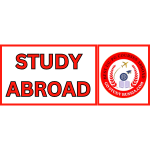Studying abroad offers numerous benefits, including exposure to new cultures, enhanced language skills, personal growth, and improved career prospects. It provides a unique opportunity to gain a global perspective and build a diverse professional network.
Requirements vary by country and institution but generally include academic transcripts, a valid passport, proof of language proficiency (such as TOEFL or IELTS scores), letters of recommendation, a personal statement, and financial proof to cover tuition and living expenses.
Consider factors such as the quality of education, course offerings, cultural environment, cost of living, language of instruction, and career opportunities. Research universities’ rankings, accreditations, and student reviews to make an informed decision.
Financing options include scholarships, grants, student loans, part-time work opportunities, and personal savings. Many universities and external organizations offer scholarships and financial aid specifically for international students.
The application process typically involves researching universities, preparing required documents, completing online applications, and submitting essays or personal statements. Some institutions may also require entrance exams or interviews.
After being accepted into a university, you will need to apply for a student visa at the embassy or consulate of the host country. The process involves submitting your acceptance letter, proof of financial support, passport, visa application form, and other required documents.
Accommodation options include on-campus dormitories, off-campus apartments, homestays, and shared housing. Universities often provide resources and support to help international students find suitable housing.
Many universities offer support services such as orientation programs, academic advising, counseling, language support, career services, and cultural activities to help international students adjust and succeed in their new environment.
Work opportunities and regulations vary by country. Some countries allow international students to work part-time during their studies, while others have strict limitations. Check the specific regulations of your host country before making plans.
Research the safety conditions of your destination, follow local laws and customs, register with your home country’s embassy, and stay informed about any travel advisories. Universities often have safety protocols and resources to support international students.

